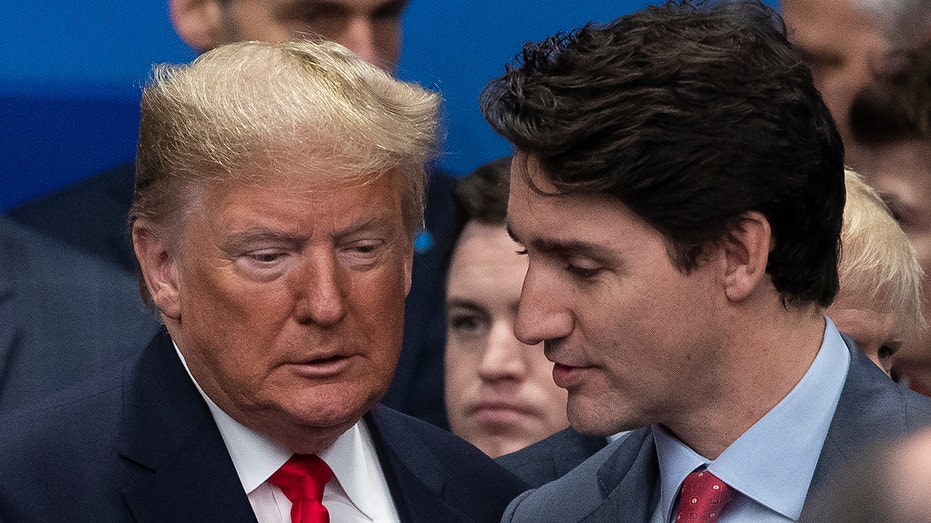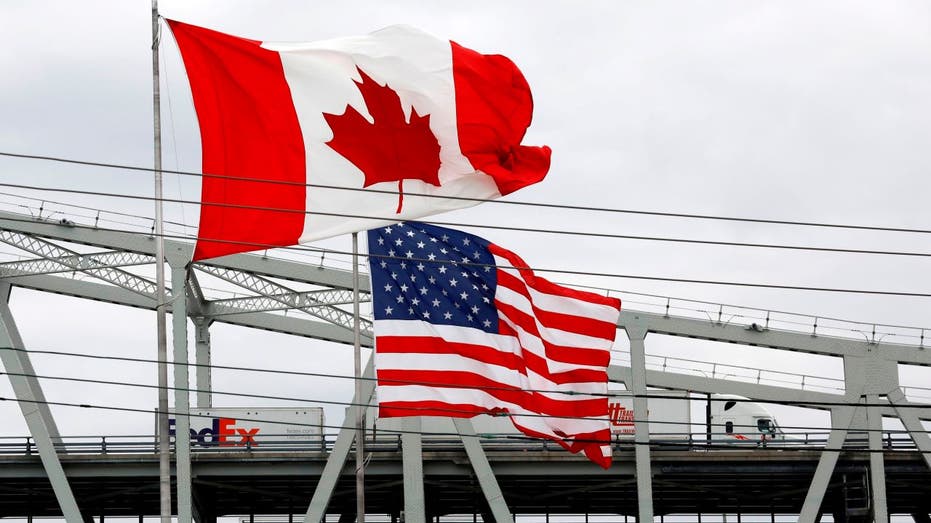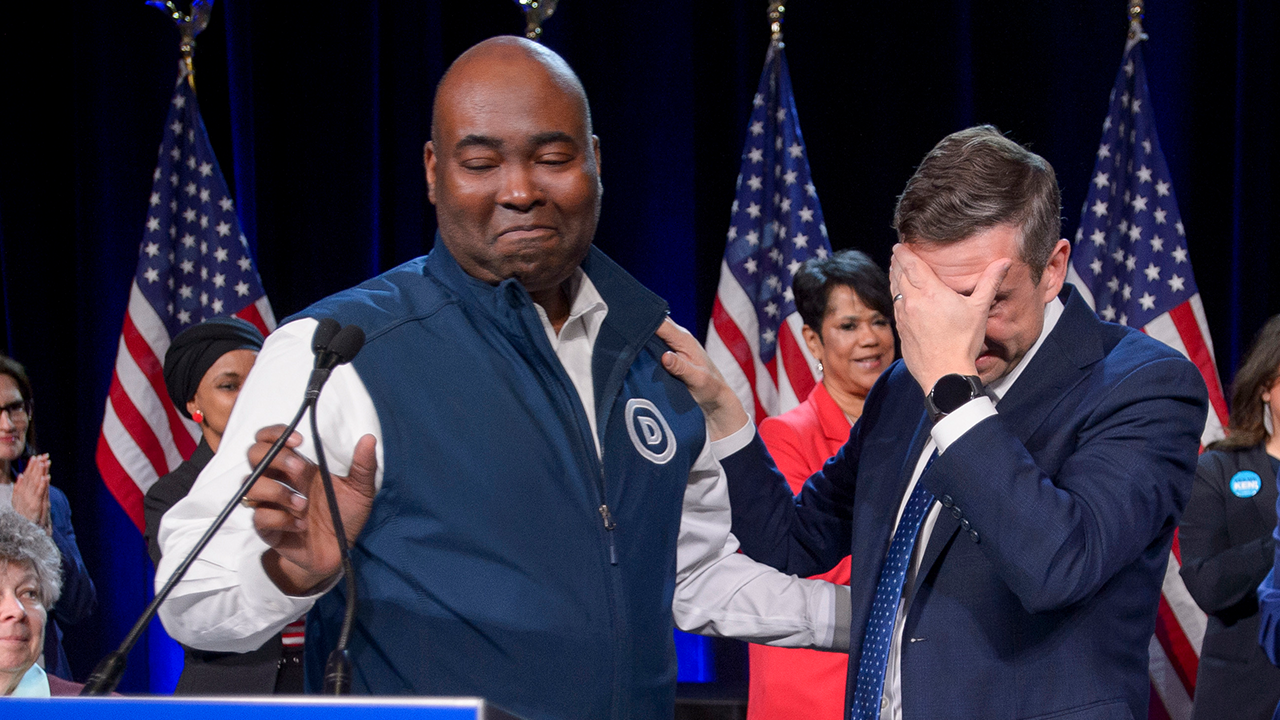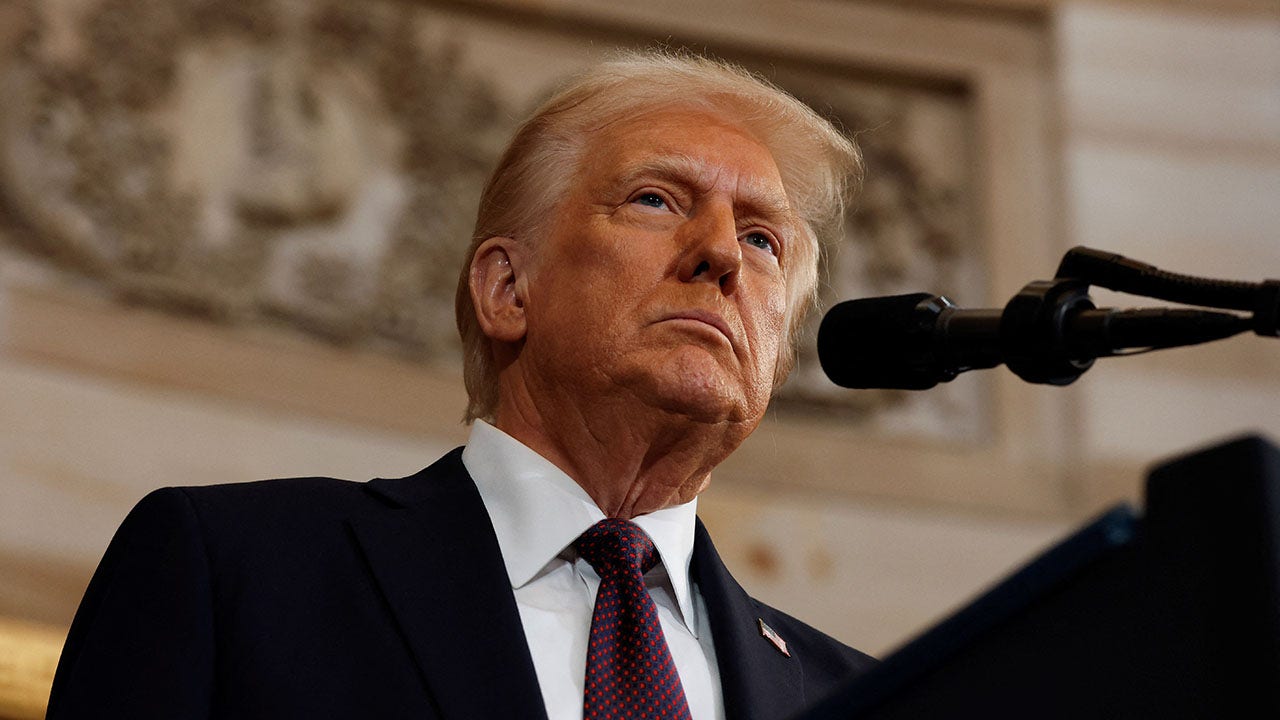OTTAWA – Canada is responding to President Donald Trump’s 25% tariffs imposed on Saturday against its northern neighbor with its own major retaliatory measures, Canadian Prime Minister Justin Trudeau announced late Saturday night.
As of Tuesday, when the U.S. tariffs take effect, Canada will impose 25% duties on about $21 billion of American goods with a further $86 billion to follow within 21 days to allow Canadian companies and supply chains to find alternatives, Trudeau told reporters at a news conference on Parliament Hill in Ottawa, surrounded by his foreign affairs, finance and public safety ministers.
He said the Canadian tariffs on U.S. imports will cover a “far-reaching” range of products, including American beer, wine, bourbon, fruits and fruit juices, vegetables, clothing, shoes, household appliances, furniture, sports equipment, lumber, plastics, “along with much, much more.”
In Trump’s executive order issued on Saturday, Canadian energy resources will face a lower 10% tariff.
TRUMP IMPOSES TARIFFS ON IMPORTS FROM CANADA, MEXICO AND CHINA: ‘NATIONAL EMERGENCY’
Trudeau said several non-tariff measures are also on the table, such as exports on critical minerals, energy and government procurement, and added that “now is also the time to choose Canada,” such as buying Canadian-made products “and “opting for Canadian rye over Kentucky bourbon, or foregoing Florida orange juice all together.”
“The actions taken today by the Trump White House split us apart instead of bringing us together,” said Trudeau, who noted that he has not talked with Trump since his inauguration as president.
However, the president’s executive order cautioned that “should Canada retaliate” with its own import duties on U.S. exports, Trump “may increase or expand in scope the duties imposed” on Canadian exports.
In a fact sheet released by the White House on Saturday, the U.S. is implementing tariffs against Canada, Mexico and China to hold them accountable “to their promises of halting illegal immigration and stopping poisonous fentanyl and other drugs from flowing into our country.” This “extraordinary threat,” the White House said, “constitutes a national emergency under the International Emergency Economic Powers Act.”
However, Trudeau claimed that “less than 1% of fentanyl and less than one% illegal crossings into the United States come from Canada.”
During the 2024 fiscal year – from Oct. 1, 2023, to Sept. 30, 2024 – U.S. Customs and Border Protection reported that it seized just 43 pounds of fentanyl at the northern border with Canada compared to 21,100 pounds of the opioid seized at the southwestern border with Mexico.
Trump’s executive order acknowledged that “much less fentanyl [flowed] from Canada than from Mexico last year, but “the amount that crossed the northern border could kill 9.5 million Americans.”
TRUMP’S TARIFFS TAKE EFFECT SATURDAY: WHAT TO KNOW

Last December, the Canadian government unveiled an $895 million plan to strengthen border security, including a strategy to “detecting and disrupting the fentanyl trade.”
Canadian conservative leaders joined Trudeau in calling for a swift and severe response to the tariffs.
In a statement released on Saturday, Official Opposition Conservative Leader Pierre Poilievre “condemn[ed] President Trump’s massive, unjust and unjustified tariffs” and said that Canada should “retaliate with dollar-for-dollar tariffs carefully aimed at maximizing impact on American companies while minimizing impact on Canadian consumers.”
“That means targeting U.S. products that we can make ourselves, buy elsewhere or do without,” said Poilievre, whose Conservatives are leading in public-opinion polls and are poised to form the next Canadian government in a general election expected as early as this spring.
Doug Ford is in his own election campaign to keep his Progressive Conservatives in power in Canada’s most populous province, Ontario, and has made the fight against the Trump tariffs a central theme.
“President Trump has chosen to move forward with tariffs that will only hurt America and make Americans poorer. Canada now has no choice but to hit back and hit back hard,” said Ontario’s premier in an X post on Saturday.
The Canadian government needs to “pursue every legal route to challenge these unfair, unjustified and illegal tariffs,” said Ford. “The coming days and weeks will be incredibly difficult.”
CANADA READY FOR TRUMP TARIFF FIGHT AS COUNTRY’S LEADERS THREATEN RETALIATION: ‘DOLLAR-FOR-DOLLAR’

David Eby, premier of British Columbia, announced on Saturday that he directed B.C.’s liquor distribution agency to stop buying liquor from red Republican states and “remove the top-selling ‘red-state’ brands from the shelves of public liquor stores.”
Reaction to the Trump tariffs extended beyond politicians.
Hockey fans at the Ottawa Senators’ home game against the Minnesota Wild Saturday night booed the singing of “The Star-Spangled Banner” to express their displeasure.
Charlie Angus, a member of Parliament who represents a northern Ontario district – larger in geographic size than the United Kingdom – in the House of Commons for the progressive New Democratic Party, told FOX Business that the Trudeau Liberal government can expect from Canadians to have “pretty strong backing to go the whole distance” in countering the Trump tariffs.
“People are seriously p—ed,” said Angus, co-founder of Pledge for Canada, a nonpartisan group of leaders from politics, labor and the arts strongly opposed to “threats of economic coercion” and “serious risks” to Canadian sovereignty in response to the U.S. tariffs and the president’s musings about annexing Canada
“He’s actually unifying us across a whole whack of different groups that would normally be fighting among ourselves,” he said.
“We’re dealing with not only the threat of tariffs but vicious insults against our right to even exist as a nation. This is not anything we’ve ever seen before.”
Angus said the U.S. duties against Canada will have a “brutally devastating impact” on both sides of the border.

During the first three quarters of 2024, $683 billion in goods and services crossed the Canada-U.S. border, according to a recent report from TD Economics.
In an analysis released last November on Trump’s 25% tariff threat against Canada, the Canadian Chamber of Commerce said the economic fallout would result in the shrinking of the U.S. gross domestic product (GDP) by 1.6%, or about $467 billion, and a reduction in Canada’s GDP by 2.6%, or about $54 billion.
Read the full article here















